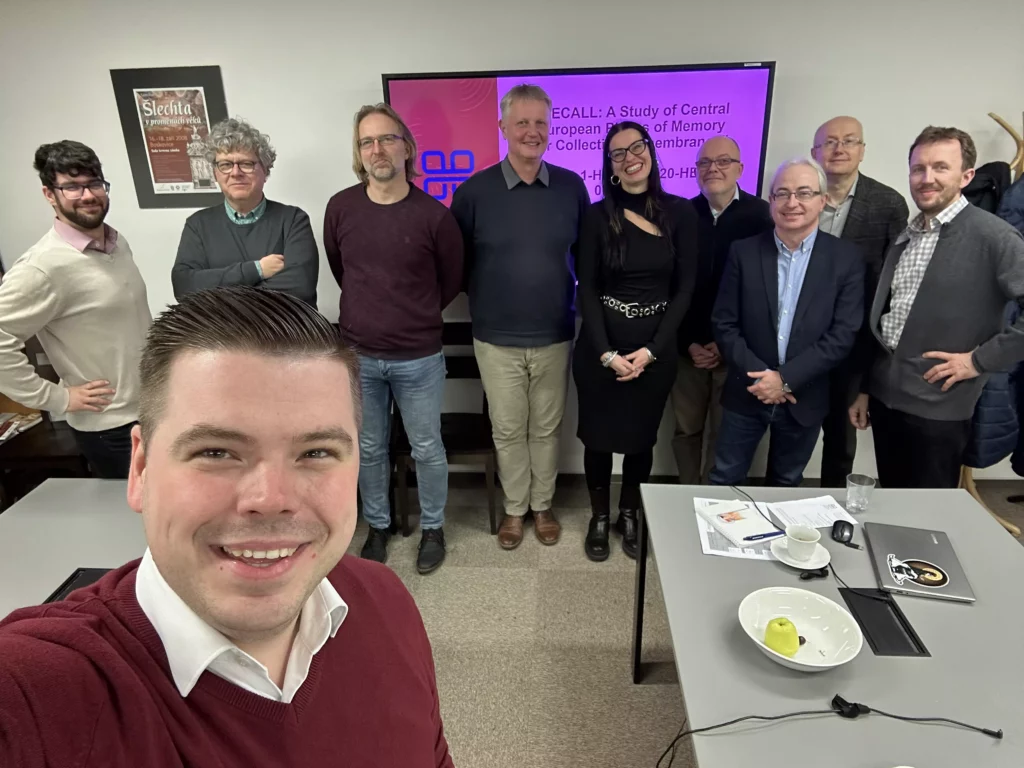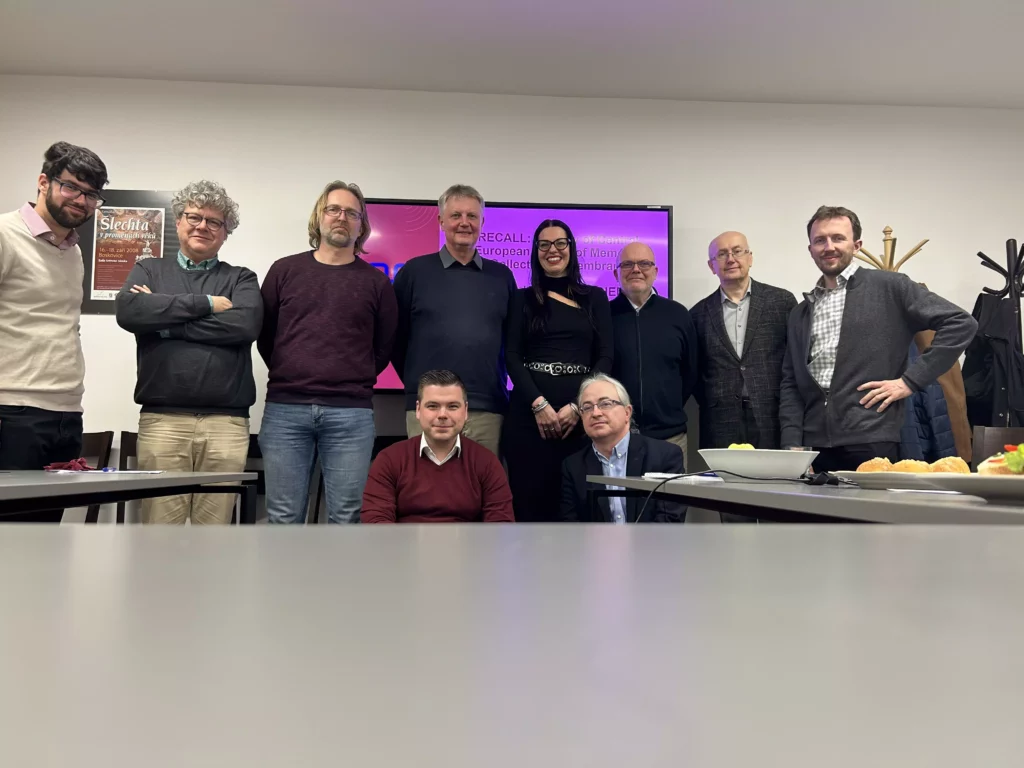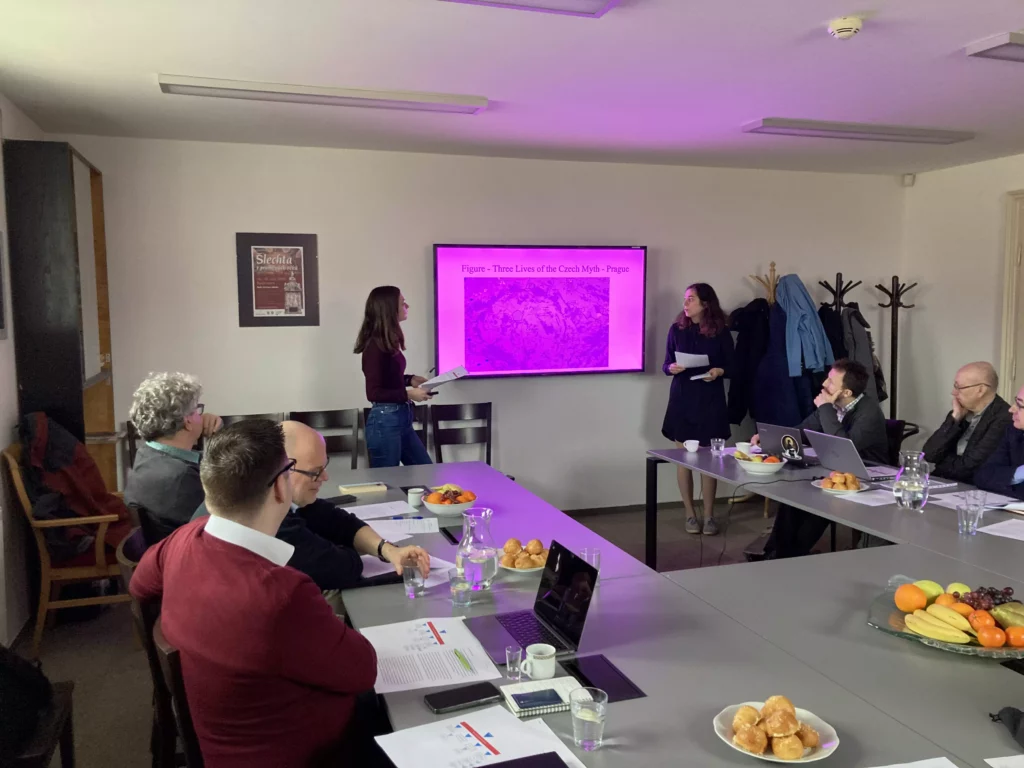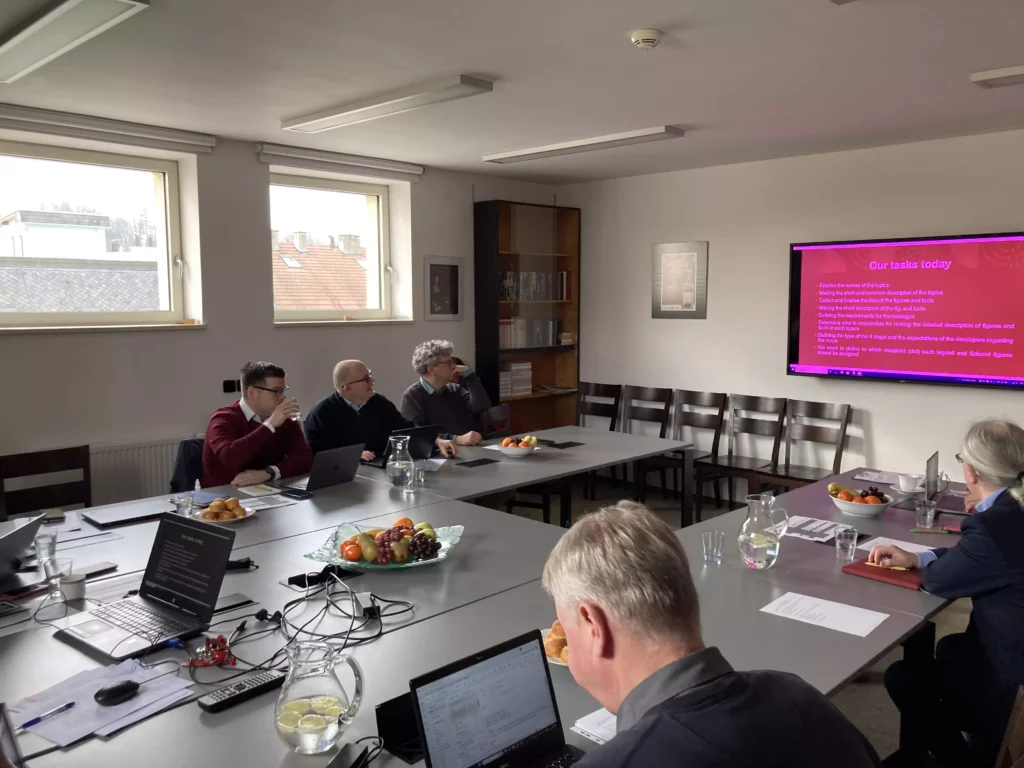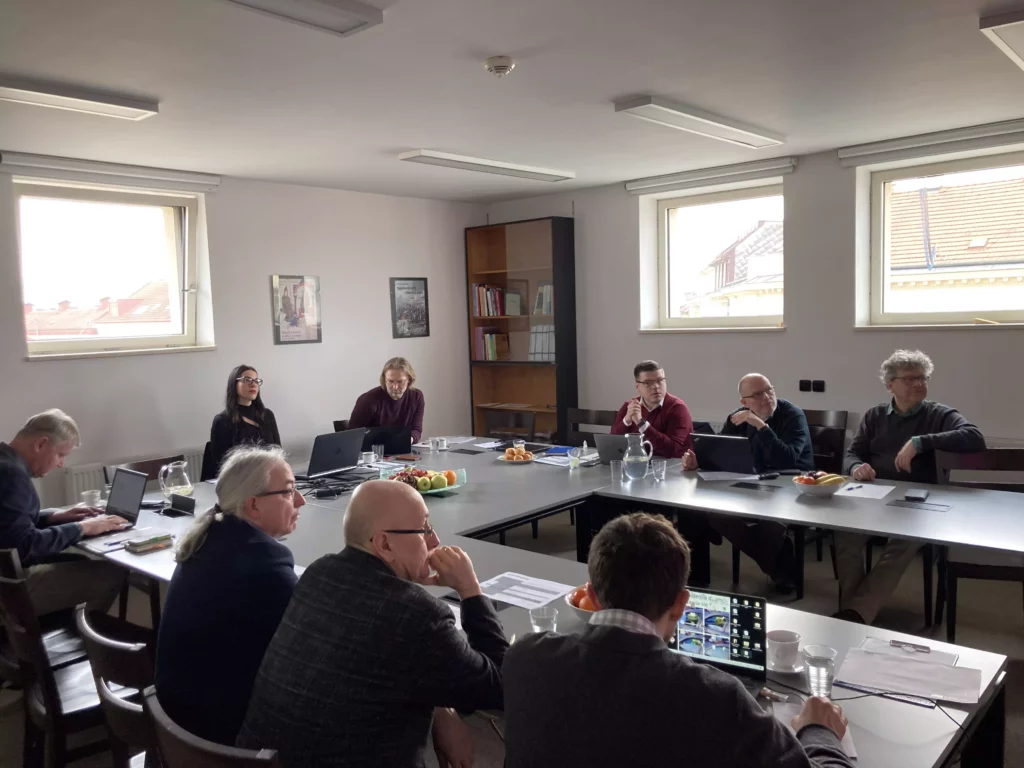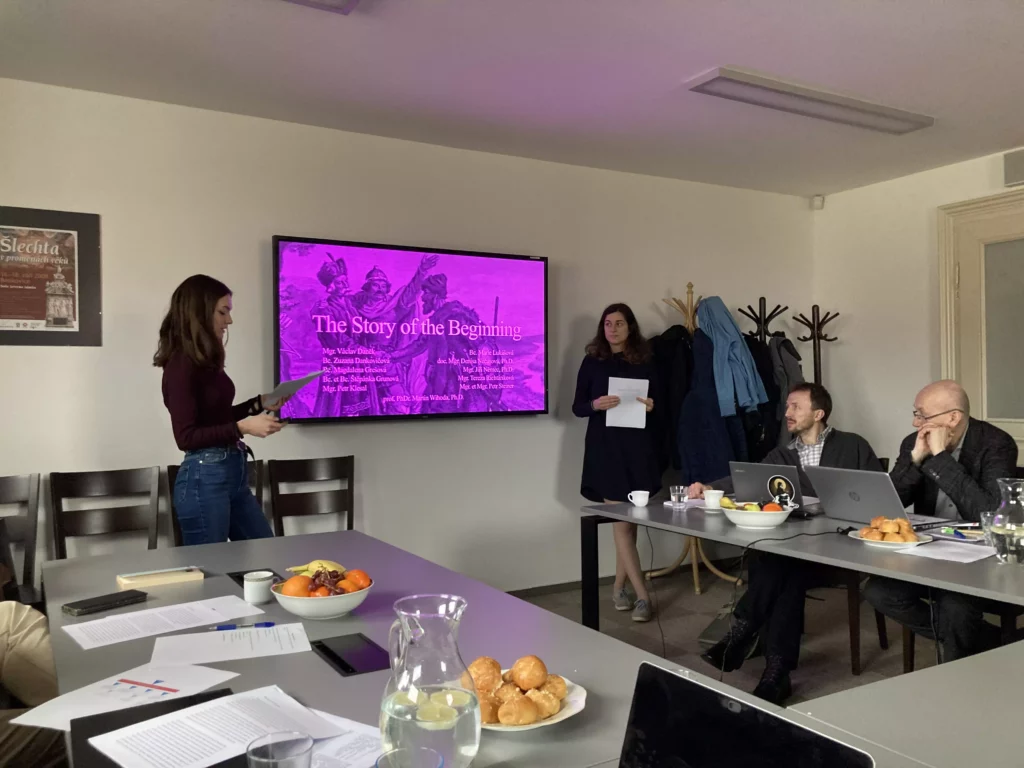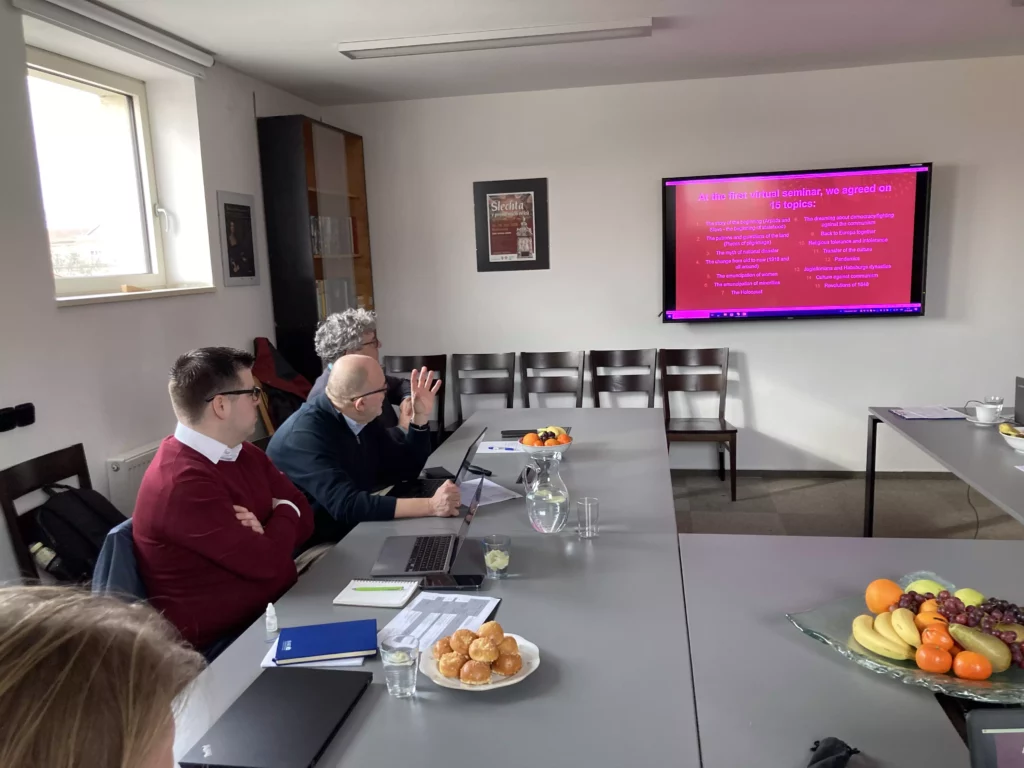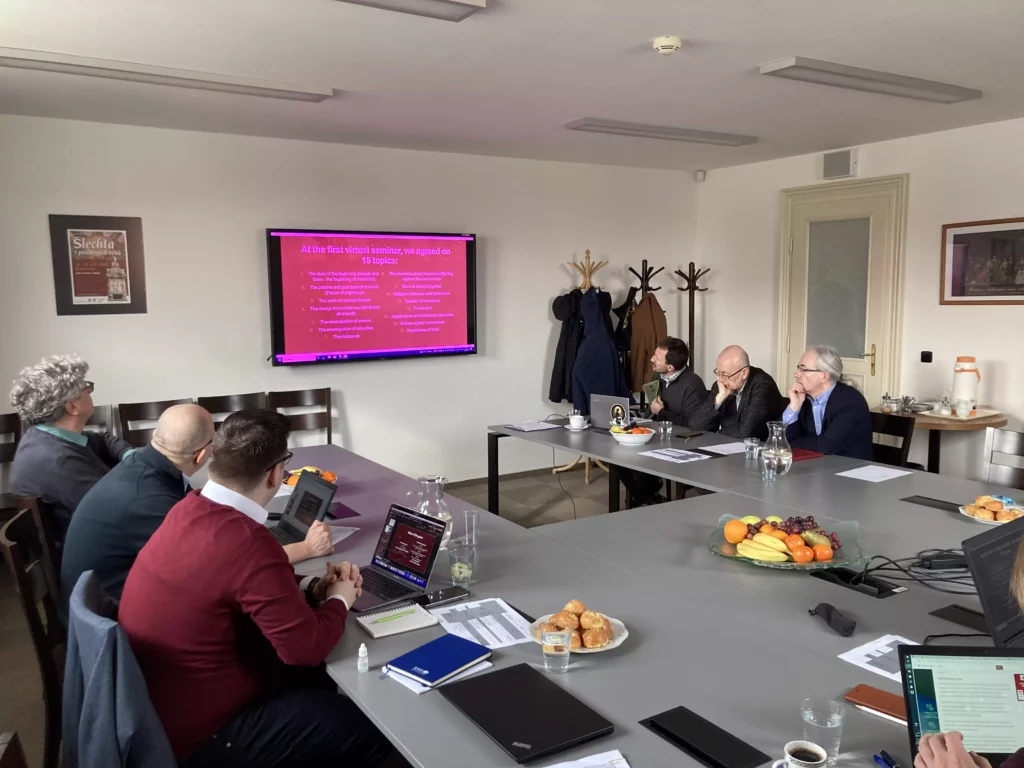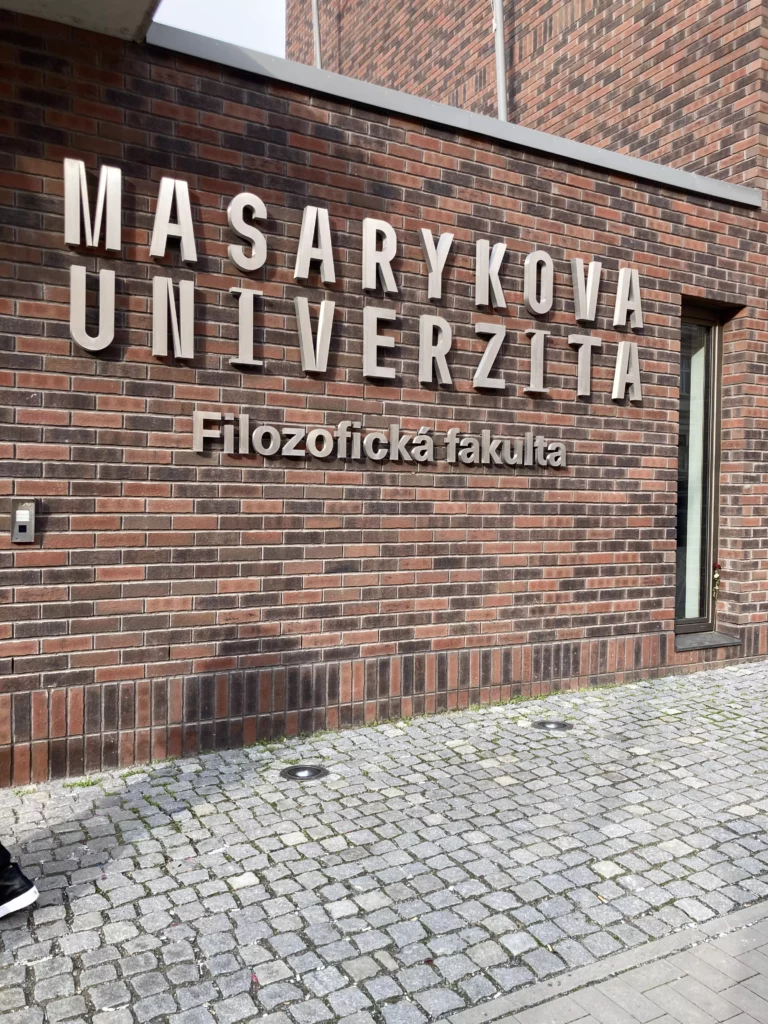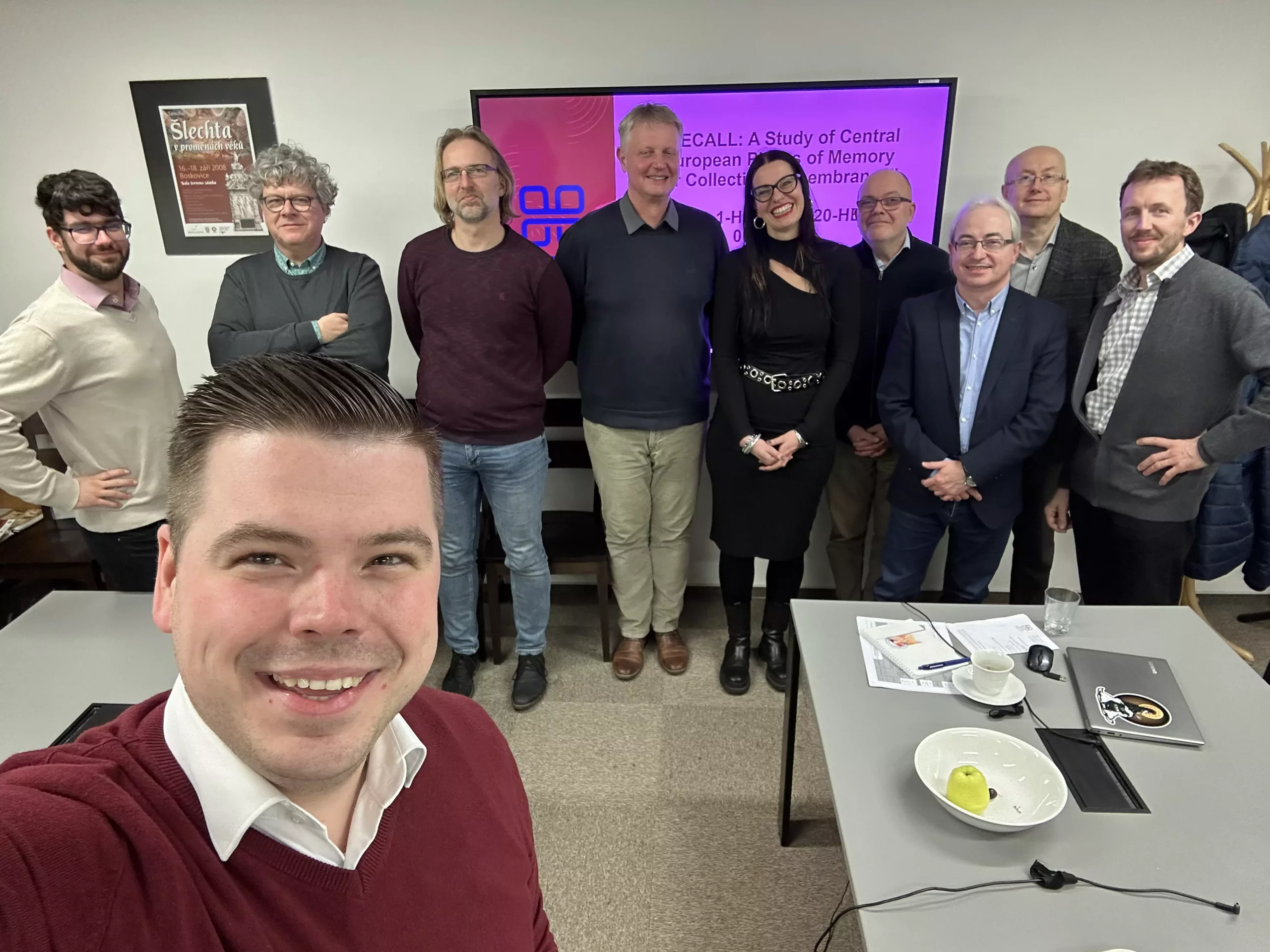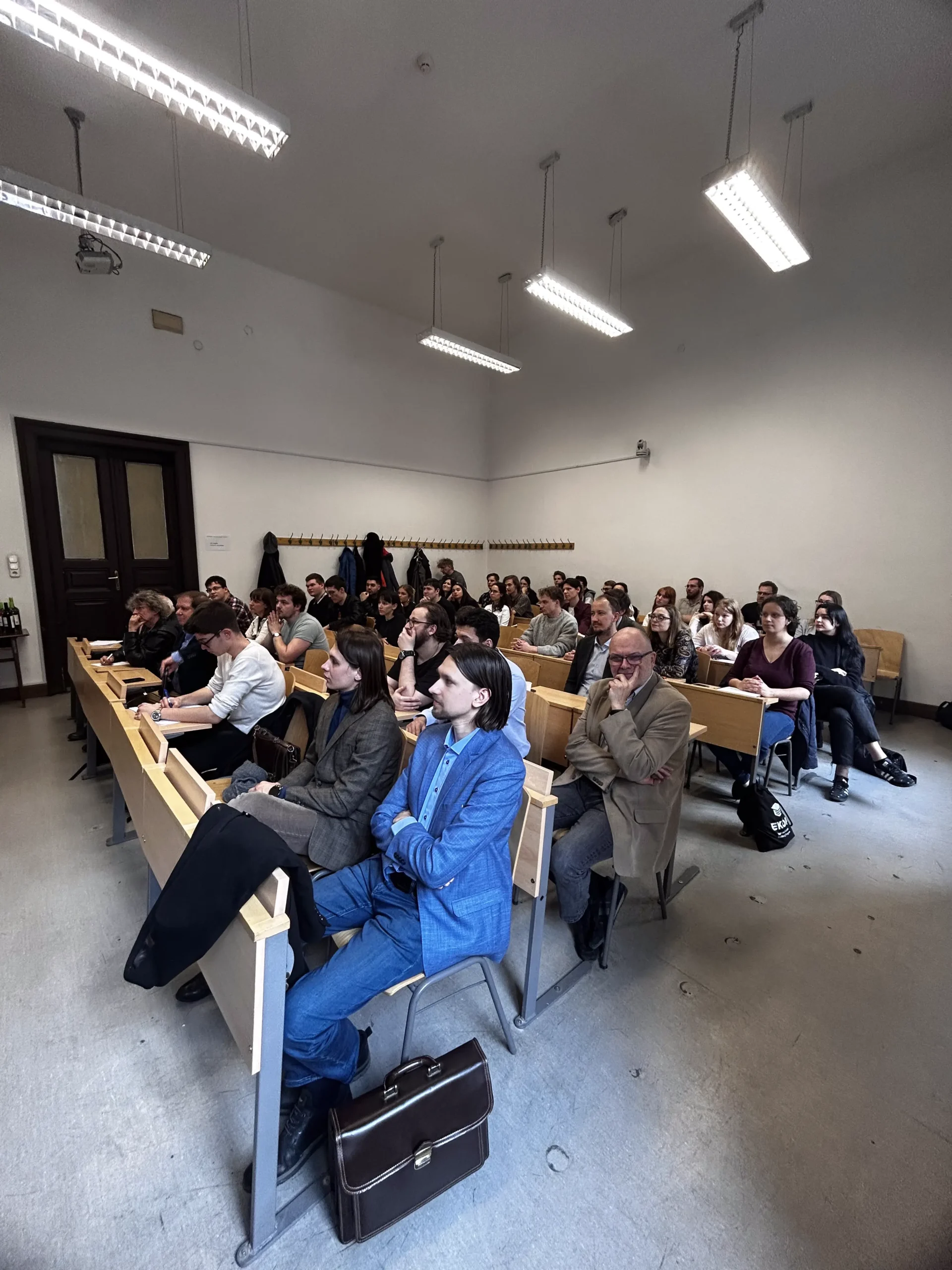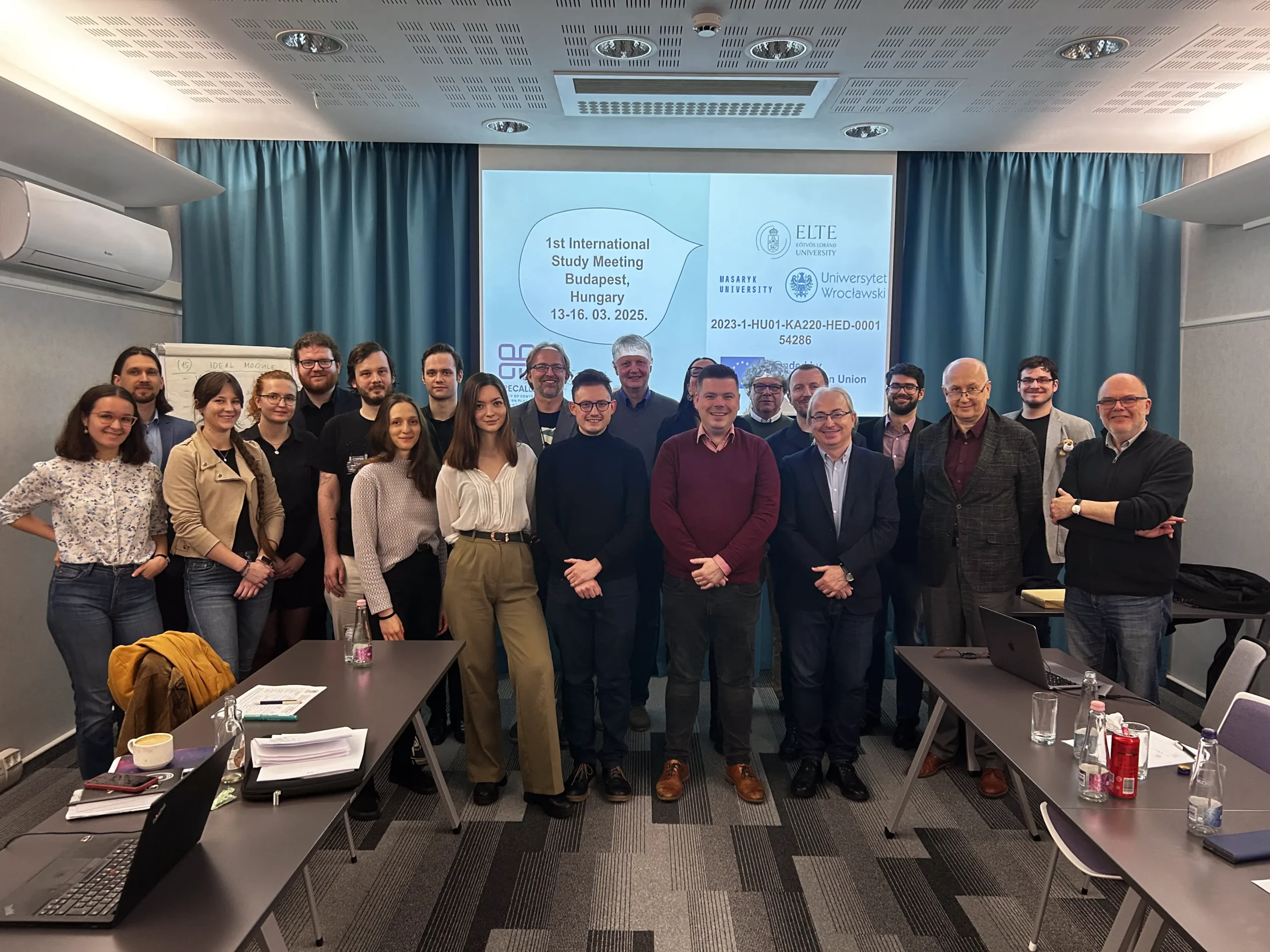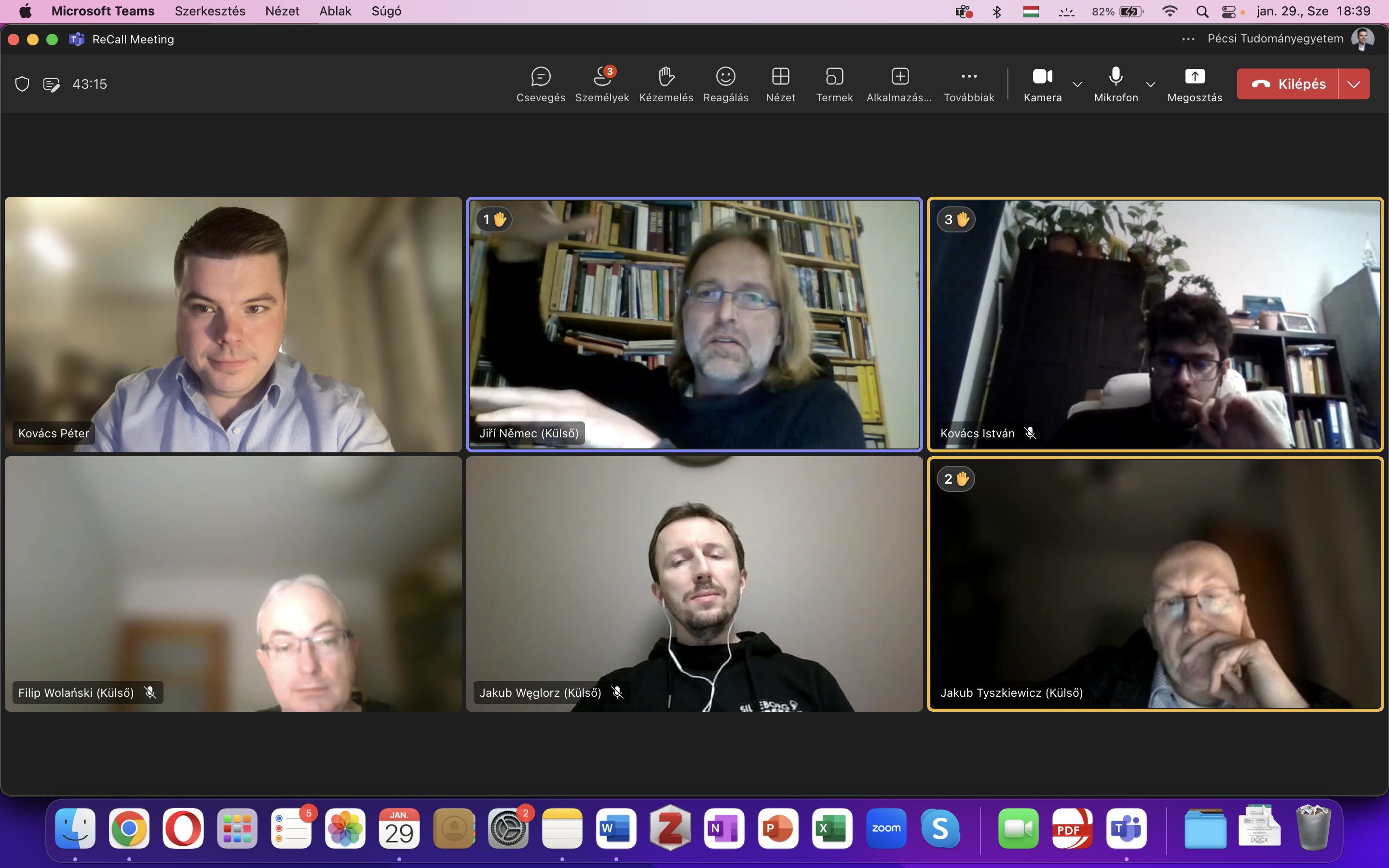In March 2024, the RECALL project team visited Brno for a key study visit, with Spielberg Castle serving as the focal point. Spielberg, known for its historical significance as a political prison during the Habsburg era, was an ideal setting for the project’s exploration of memory sites and their representation in the thematic maps. Over the course of three days, participants from Hungary, Poland, and the Czech Republic presented and discussed national memory sites, focusing on the figures and historical facts that connect them to broader Central European narratives.
The morning began with an overview of the administrative aspects of the project and a detailed presentation on the development process of the thematic maps. Discussions also covered organizational details, such as the selection of topics, figures, and facts to be included in the maps. The afternoon was dedicated to refining the catalogue, with a focus on presenting a model topic that would guide future entries. The team examined various proposals, debating how to organize the information in a way that effectively conveys the historical complexity of each site.
- Proposal Presentations: Each national team presented their proposals for memory sites, discussing the figures and historical facts that would be included. This collaborative exchange provided the team with a clearer understanding of how to represent each country’s significant historical sites.
- Thematic Refinement: Spielberg Castle was selected as a representative site for the theme of political repression and resistance, a topic central to Central European history.
- Methodology Development: The team refined their methodology for integrating visual and textual elements into the thematic maps, ensuring that the representation of memory sites would be both historically accurate and engaging for users.
The visit concluded with a final review of the discussed topics and agreements on the next steps. By the end of the visit, the project had made significant progress in refining the methodology for representing complex historical sites like Spielberg Castle and organizing the catalogue of memory sites for future development.
The materials collected during the visit, including photographs and videos of Spielberg Castle’s prison cells, fortifications, and surrounding landscapes, will play a crucial role in the project’s visual outputs. This visit, much like those to Budapest and Wroclaw, was integral to advancing the RECALL project’s goals of preserving and showcasing Central European memory. As the team moves forward, further meetings and virtual seminars are planned for 2024, with the next steps focusing on finalizing the integration of memory sites into the project’s thematic maps.
